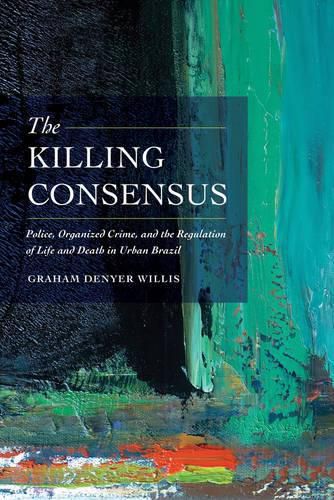Readings Newsletter
Become a Readings Member to make your shopping experience even easier.
Sign in or sign up for free!
You’re not far away from qualifying for FREE standard shipping within Australia
You’ve qualified for FREE standard shipping within Australia
The cart is loading…






We hold many assumptions about police work-that it is the responsibility of the state, or that police officers are given the right to kill in the name of public safety or self-defense. But in The Killing Consensus, Graham Denyer Willis shows how in Sao Paulo, Brazil, killing and the arbitration of normal killing in the name of social order are actually conducted by two groups-the police and organized crime-both operating according to parallel logics of murder. Based on three years of ethnographic fieldwork, Willis’s book traces how homicide detectives categorize two types of killing: the first resulting from resistance to police arrest (which is often broadly defined) and the second at the hands of a crime family’ known as the Primeiro Comando da Capital (PCC). Death at the hands of police happens regularly, while the PCC’s centralized control and strict moral code among criminals has also routinized killing, ironically making the city feel safer for most residents. In a fractured urban security environment, where killing mirrors patterns of inequitable urbanization and historical exclusion along class, gender, and racial lines, Denyer Willis’s research finds that the city’s cyclical periods of peace and violence can best be understood through an unspoken but mutually observed consensus on the right to kill. This consensus hinges on common notions and street-level practices of who can die, where, how, and by whom, revealing an empirically distinct configuration of authority that Denyer Willis calls sovereignty by consensus.
$9.00 standard shipping within Australia
FREE standard shipping within Australia for orders over $100.00
Express & International shipping calculated at checkout
We hold many assumptions about police work-that it is the responsibility of the state, or that police officers are given the right to kill in the name of public safety or self-defense. But in The Killing Consensus, Graham Denyer Willis shows how in Sao Paulo, Brazil, killing and the arbitration of normal killing in the name of social order are actually conducted by two groups-the police and organized crime-both operating according to parallel logics of murder. Based on three years of ethnographic fieldwork, Willis’s book traces how homicide detectives categorize two types of killing: the first resulting from resistance to police arrest (which is often broadly defined) and the second at the hands of a crime family’ known as the Primeiro Comando da Capital (PCC). Death at the hands of police happens regularly, while the PCC’s centralized control and strict moral code among criminals has also routinized killing, ironically making the city feel safer for most residents. In a fractured urban security environment, where killing mirrors patterns of inequitable urbanization and historical exclusion along class, gender, and racial lines, Denyer Willis’s research finds that the city’s cyclical periods of peace and violence can best be understood through an unspoken but mutually observed consensus on the right to kill. This consensus hinges on common notions and street-level practices of who can die, where, how, and by whom, revealing an empirically distinct configuration of authority that Denyer Willis calls sovereignty by consensus.